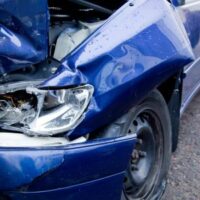What To Do If You Were Involved In An Out-Of-State Car Accident

The aftermath of a car accident is difficult enough to navigate when someone is involved in a crash in their home state. Things can become even more complicated, however, when a person is involved in an accident outside of Florida. We’ve included a few tips to help give you an idea of some of the obstacles you could be facing in this situation. To learn more or for help with the specifics of your own case, please reach out to our experienced Maitland car accident lawyers today.
Fault vs No-Fault States
Whether or not an accident victim can recover compensation after a car crash will largely be dictated by whether the state in which the accident occurred adheres to a fault-based or no-fault standard of liability. Florida is a no-fault insurance state, which means that the initial costs of a crash will be covered by a driver’s own insurer, regardless of who actually caused the collision. Florida, however, is only one of a handful of no-fault states in the country, as the majority of the U.S. adheres to a fault-based standard, wherein negligent drivers are held liable for any accidents that they cause. If a Florida resident is injured in one of these states, he or she can seek compensation directly from the at-fault driver’s insurer.
Contributing to an Accident
Besides handling insurance-related issues differently, states also have differing standards when it comes to the allocation of fault and how it affects an accident victim’s recovery. States generally use one of three ways to allocate fault:
- The contributory negligence standard, which applies in only four states and bars victims from recovery if they contribute in any way to their crashes;
- The comparative negligence standard, which applies in Florida and involves the reduction of a plaintiff’s recovery by his or her degree of fault in causing a crash; and
- The modified comparative negligence standard, under which plaintiffs are still eligible for recovery, but only if they were 50 percent or less at fault for the crash.
Which of these standards is used in a specific case will determine whether, and how much, a person can recover in compensation after a car crash.
What to do After an Out-of-State Accident
Taking certain precautions after an out-of-state car crash is critical to a victim’s health and ability to recover compensation at a later date. Of the utmost importance, for instance, is seeing a doctor as soon as possible, as waiting until they return to their home state can result in worsened injuries and questions about causation. Accident victims should also report their crash to the police, who will create a record of the accident that includes important details about the collision. Refusing early settlement offers is also usually a good idea as accident victims will want to make sure that they understand the insurance coverage available before negotiating a settlement.
Speak with a Dedicated Maitland Car Accident Attorney
One of the best things that a person can do after an out-of-state crash is seek legal advice from an experienced car accident attorney. For a free evaluation of your own case, please call Goldman Law, P.A. at 407-960-1900 today.
